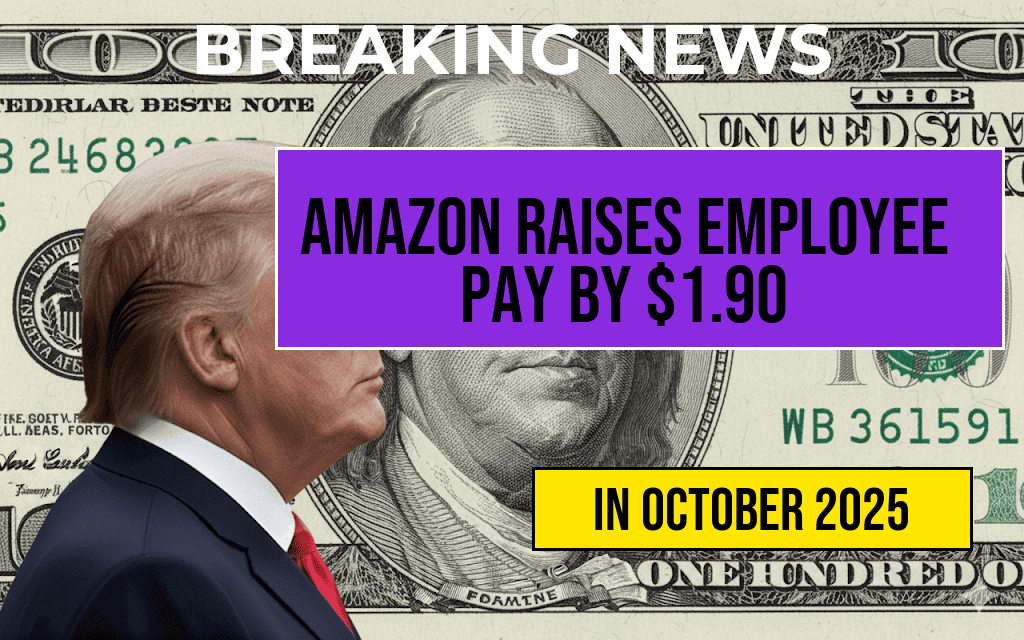Recent discussions around proposed increases to the minimum wage—specifically a hypothetical $1 raise—have ignited debate among small business owners, economists, and policymakers alike. While elevating wages can enhance worker livelihoods, critics warn that even modest adjustments might compel some small businesses to reduce employment levels or accelerate automation efforts. This tension highlights a complex balancing act: ensuring fair compensation without undermining the viability of small enterprises that operate on slim profit margins. As automation technology becomes more affordable and accessible, understanding whether a small wage bump could trigger widespread job cuts or automation adoption is crucial for shaping future labor policies and business strategies.
The Potential Impact of a $1 Wage Increase on Small Businesses
For many small enterprises, the decision to absorb higher labor costs involves weighing immediate expenses against long-term sustainability. A $1 increase in the minimum wage might seem minor in percentage terms, but for businesses operating with tight budgets, it can translate into a significant percentage increase in wages. According to data from the Wikipedia entry on minimum wages, small businesses often pay wages close to the minimum, making even small increases impactful.
Some experts argue that such wage hikes can lead to a reduction in overall employment levels, either through layoffs or hiring freezes. Conversely, proponents contend that higher wages can boost productivity and reduce turnover, ultimately benefiting business health. The real-world effects, however, appear to vary depending on industry, location, and individual business circumstances.
Automation as a Response to Rising Labor Costs
One of the most significant concerns associated with increased wages is the acceleration of automation adoption. As labor becomes more expensive, companies may find it economically advantageous to replace human workers with machines or software solutions. This shift is particularly visible in sectors like retail, hospitality, and manufacturing, where automation can streamline operations and reduce ongoing labor costs.
| Year | Average Wage Increase | Automation Investment Growth | Industries Most Affected |
|---|---|---|---|
| 2020 | Approximately 3% | 8% | Manufacturing, Retail |
| 2021 | 4% | 12% | Hospitality, Warehousing |
| 2022 | 5% | 15% | Food Service, Logistics |
This table illustrates how even moderate wage increases can correlate with higher investment in automation, as businesses seek to mitigate rising labor expenses. The trend underscores a pivotal shift: automation not only offers long-term cost savings but also has the potential to displace significant numbers of low-skilled jobs.
Industry-Specific Responses and Regional Variations
Retail and Hospitality Sectors
In retail and hospitality, where labor costs constitute a substantial part of expenses, a modest wage increase can prompt immediate operational adjustments. Some small businesses may respond by reducing staff hours or laying off workers, especially during periods of low sales volume. Others might accelerate the adoption of self-service kiosks, automated checkouts, or digital ordering systems to maintain profit margins.
Manufacturing and Warehousing
Manufacturers and warehouse operators, facing tight margins and high automation feasibility, may see wage hikes as an opportunity rather than a threat. Increased wages can make automation more financially justifiable, leading to faster deployment of robots and automated logistics systems. A report from the Forbes article on warehouse automation highlights how firms are rapidly expanding robotic fleets to offset rising labor costs.
Balancing Wage Growth with Small Business Viability
Policy debates often revolve around the trade-offs between improving living standards for workers and maintaining a vibrant small business environment. Some advocates argue that incremental wage increases can be absorbed without significant layoffs if coupled with productivity improvements and business support initiatives. Others caution that without targeted assistance, small firms might face disproportionate hardships, especially during economic downturns or in regions with high living costs.
Supporting Small Businesses During Wage Transitions
- Tax credits and subsidies: Offering targeted financial support can help small firms bridge the gap created by wage hikes.
- Training programs: Enhancing worker skills can improve productivity, offsetting higher labor costs.
- Gradual implementation: Phasing in wage increases allows businesses time to adapt and invest in automation or process improvements.
The Broader Economic Perspective
Research indicates that moderate wage increases generally lead to modest employment effects, with some studies suggesting benefits such as increased consumer spending and reduced employee turnover. However, the potential for automation-driven job displacement remains a concern, especially for low-skilled roles vulnerable to technological substitution. Policymakers and business leaders must navigate these dynamics carefully, weighing short-term operational costs against long-term economic health.
As automation technologies continue to evolve, their role in reshaping the employment landscape will only grow. Small businesses, often the backbone of local economies, face the challenge of integrating these innovations without compromising employment opportunities. The key lies in strategic planning, supportive policies, and a nuanced understanding of industry-specific impacts.
Frequently Asked Questions
Question
Could a one-dollar wage increase significantly impact small businesses and their employment levels?
Question
How might automation be affected by rising wage costs in small businesses?
Question
What are the potential cost-saving strategies small businesses might adopt in response to increased wages?
Question
Does the article suggest that a small wage increase could lead to job cuts in certain industries?
Question
What are the possible long-term impacts of wage increases and automation on small business employment?









